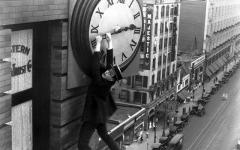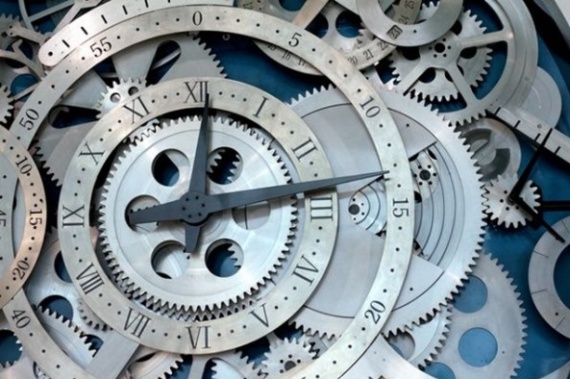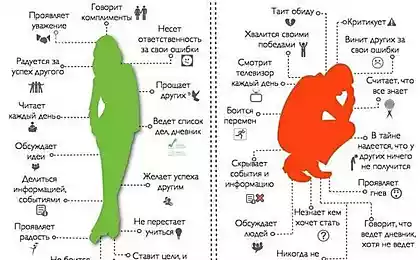1648
Daylight saving time: how it started and why?

Everyone is probably wondering: why are we doing this?
In the US, 27% of respondents admitted that at least once in their lives suffered from the fact that the clock is not transferred in time
When and how did it start?
Ben Franklin is known for its go to bed early and wake up early, was probably the first person who proposed the concept of daylight saving time. At least, so says David prairie, author of "Chasing Daylight: curious and controversial history of Daylight Saving Time».
When Franklin was the American ambassador to France, in Paris, he asked to be woke up at 6:00 and realized to my surprise that the sun rises much earlier than he used to. Imagine how much oil could be saved on a night light while!
"Franklin realized that it would be advantageous to use daylight saving, but he did not know how to implement it," - says the prairie.
But, despite the fact that understanding came to Franklin in Paris, the concept has been adopted on a large scale only in the First World War. Germany was the first country to accept the change of time, thus reducing the cost of artificial lighting, saving coal for the war effort. Friends and foes Germany soon followed suit.
In the US, federal law has standardized annual daylight saving time in 1918 - for the states who have decided to follow it.
During World War II, daylight saving time was legalized throughout the country as a way of saving military resources. On February 9, 1942 to September 30, 1945. Government has gone further: the use of daylight was called "standard time", and the country has lived through it all year round.
Since the end of World War II, daylight saving time has ceased to be compulsory; it is canceled, then again introduced.
But retains whether daylight saving time any energy now? This additional resource, or simply unnecessary whim, which only confuses and also harmful to health?
In recent years, on the subject conducted several studies. According to their results, some scientists have suggested that daylight saving time does not save energy, and, moreover, even leads to losses.
Hendrik Wolff economist at the University of Washington conducted a study that used data on energy consumption in Australia in 2000, when, during the Olympic Games in Sydney, in some parts of the country make the transition to daylight saving time, and in some areas - no. The researchers found that the practice reduced the use of lighting and electricity consumption in the evening, but the increased use of energy in the morning. Consequently, the program has not achieved any significant results.
University of California economist Matthew Kochenov observed a similar situation in Indiana (USA).
Until 2006, only 15 of the 92 districts in the state of daylight saving time. Thus, when the whole state adopted daylight saving time, it was possible to compare the energy consumption before and after the transition. While the use of artificial light has decreased, increased use of air conditioning, which has reduced to zero, any savings from the use of light, concluded in his study Kochenov.
Additional light hour, which is added in the evening, preferably a very hot. "So if people return home an hour earlier in a stuffy house, they include air conditioning," - says Wolff.
Research has shown that people are paying more for electricity bills than to daylight saving time.
But all of these studies relate to specific regions. If we talk about such a large country like the United States, benefit or harm with energy-saving point of view can be determined depending on the location - north or south is the staff.

Model internal clock mechanism in the Chinese Museum of Science and Technology in Beijing.
As daylight saving time affects the health?
Proponents of daylight saving time for decades argued that, regardless of whether positively or negatively, this practice is reflected in the energy saving, it is good for health as it supports a healthy lifestyle, says Wolff.
"In the American sociological study of time use, we can clearly see that after daylight saving time in the spring of reduced spending time" watching television "and instantly activated activities such as jogging, walking or riding, - he said. - It is surprising, since the total number of daylight hours for some time does not change ».
But other scientists warn about the harmful effects of daylight saving time.
Till Renneberg, chronobiologist at the University of Ludwig Maximilians-in Munich (Germany) said that his research shows that our circadian biological clock, which are controlled by light or dark at the moment on the street, never adapted to receive "extra" hours of solar light at the end of the day during the summer time.
"The consequences of this: most of the population drastically reduced productivity, reduced quality of life, increased susceptibility to disease, and there is a tendency to just general fatigue," - says Renneberg.
One of the reasons that so many people in the developed world suffer from chronic fatigue, is that we all suffer from "social jet lag." In other words, the optimal circadian sleep periods are inconsistent with the actual sleep schedule.
"Light of different biorhythms affect the morning and evening. Large amount of light in the morning advances the biological clock, which is good. But a large amount of light in the evening delays biological clock ».
Other research hints at even more serious health risk.
A 2008 study in The New England Journal of Medicine has led researchers to the conclusion that at least in Sweden risks receiving a heart attack increase in the first days after the time of the spring changes. "The most likely explanation for this - jet lag and therefore, sleep disturbance," - says the study's lead author Imre Yanstsky of the University of Health in Stockholm for National Geographic.
Opinion polls showed that 40% agree that the extra hour in the summer - it's good. However, 48% of respondents believe that the difficulties associated with the transition to summer time, not worth this additional hour.























